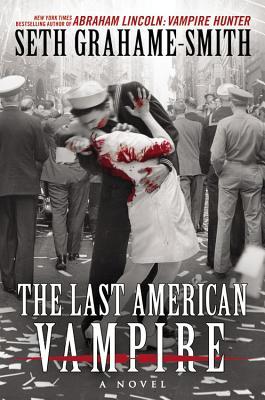This book talks about the life of Henry Sturges, the vampire who trained Lincoln to become a vampire hunter and helped Lincoln considerably through his career. The novel is not done in strict chronological order and jumps around through Henry's life as both a human and then as a vampire after he gets turned by another vampire living in Roanoke colony. The novel ends with Sturges in semi-retirement, having been worn out by some four hundred years of life before a cliff-hanger ending implying that Sturges will join the fray once more.
Unfortunately, I have to say I don't think this book was very good because it suffers very badly from what I frequently call the ''Forrest Gump Effect. As I've said in my reviews of books like the Sharpe series, one of the weaknesses of historical fiction is it tends to get tied up into important events and main characters, such as Richard Sharpe, find themselves at pivotal events in history. This is partly to give the characters something to do and partly because research materials about famous people and events are simply much more available than ordinary day-to-day life. To an extent I'm willing to tolerate this. Sharpe after all has no business being at the Battle of Trafalgar, being an infantryman. But I feel that The Last American Vampire goes beyond an acceptable level and starts getting into downright crazy territory. For example, here's a list of things Henry Sturges does in the novel:
- Carves the mysterious ''CRO'' message found at Roanoke colony.
- Gets adopted by Powhatan (Wahunsenacawh), paramount chief of the Tsenacommacah, becomes a foster uncle to Pocahontas, and meets the original Jamestown settlers.
- Solves the Jack the Ripper murders with the help of Bram Stoker and Arthur Conan Doyle.
- Becomes best friends with real-life best friends Mark Twain and Nikola Tesla.
- Gets involved in the assassination of Rasputin, who is also a vampire, and brings Tesla along so he can use his microwave death ray to kill Rasputin.
- Teams up with Elliot Ness in Chicago during the 20's and becomes the origin of the name ''Untouchables''.
- Is sent by FDR in 1937 to assassinate Hitler, not a vampire, and fails. Also, blows up the Hindenburg on the way home.
- Is involved in the hunt for the real people responsible for JFK's assassination.
Another issue I have is that there's an attempt to have a vampire super-villain who is trying to bring America down throughout all of its history. Except the way they go about it doesn't make terribly much sense. This cabal is involved in a significant number of Presidential deaths, such as the assassinations of James Garfield, William McKinley, and John F. Kennedy, as well as the early death of Zachary Taylor in 1850. Which seems a frightfully inefficient way of destroying America, especially in the case of McKinley because it placed a far more dynamic and reform-minded individual (my hero Theodore Roosevelt) in the presidency. I just can't see how bumping off a president every other decade or so really accomplishes the goal of taking down America.
It's also implied that this enemy is behind both World Wars and at least part of the Cold War but World War I, which the enemy is explicitly behind more than the other two, had no guarantee of getting the United States involved at all. And I'm not exactly sure what the enemy is trying to accomplish. Sure, villainous monologues explaining their detailed plans are hackneyed and trite, but it at least tells me what the villain's trying to accomplish and why. Even if it's 1. conquer the world because 2. I'll show you, I'll show all of you . With Last American Vampire I never really understand what the villain is trying to accomplish, much less why they are either. I can kind of guess, but it just seems insufficient.
Overall I'd say this book is kind of a disappointing sequel. In many ways it's a very safe sequel providing more of the same stuff we enjoyed before. And while I'm sure there are people who like that a lot, I was kind of was hoping for something a little different. There are some good parts, but between the presence of Henry Sturges at many important historical events and the rather weak villain I can't really recommend this book.
- Kalpar


No comments:
Post a Comment